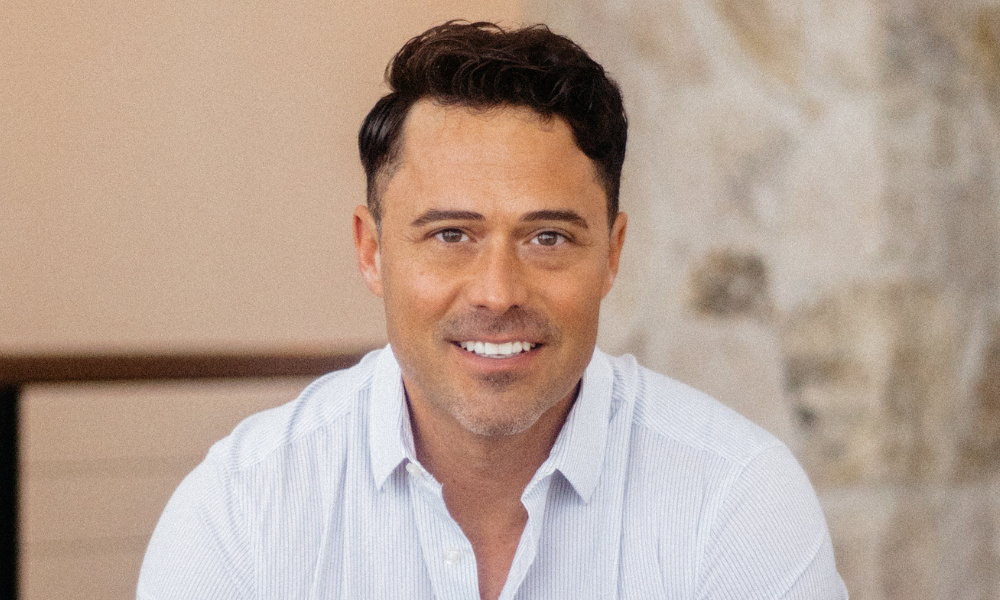Tyler Mordy says US trade policies will boost domestic spending and innovation across the globe

A heightening trade dispute between China and the US has brought markets to their knees in the last two weeks, with many suggesting the world’s two largest economies are entering into an economic Cold War.
US President Donald Trump slapped 145 per cent tariffs on Chinese imports after singling out China from his 90-day pause on “Liberation Day” tariffs that targeted countries across the globe. China has since replied with a 125 per cent tariff on US goods, heating up an already intense ideological and economic battle between the two nations.
Rather than adopting a bearish mentality towards this heightened volatility, Tyler Mordy suggests advisors and investors should be looking to global markets with optimism. He predicts that a gradual exodus from US markets will provide tailwinds for globally diversified portfolios, a strategy which had lost plenty of momentum as Mag 7 stocks began to dominate investors’ attention.
“Last week was the fourth most volatile week in US market history. So the danger is that you get very bearish and run for the hills,” said Mordy, CEO of Forstrong Global. “Global diversification appeared to not work for a long time, because everyone was all in the Mag 7 and the US stock market. But global diversification is working in spades again.”
Mordy suggests Trump’s ideologically influenced tariffs have put significant pressure on the Mag 7 companies that had spurred a years-long bull run in American markets. He particularly points to the headwinds which will be faced by Apple as an example of how intertwined the two economies are, and the difficulty of untangling deeply woven trade relationships.
“If you're Tim Cook, CEO of Apple, and you look at this concept of decoupling from China, you’ll say it's absolutely ridiculous and it's never going to happen,” he said. “There's just too many linkages between the two countries.”
Countries outside the US have little appetite to slow down free trade, and will begin to manoeuvre around the US’ volatile policies, according to Mordy. He says that unlike the Great Depression, when a US market collapse pushed nations around the world to adopt protectionist stances, other major economies have already looked to build stronger ties with new markets.
“The path of least resistance is for not just China, but for other countries to cozy up with each other and pursue free trade deals,” he said. “We're seeing every other country engage diplomatically and try to get free trade deals – I don't see that changing. The US experiment with protectionism is a cautionary tale to other countries of what not to do.”
While China is Canada’s second-largest trading partner after the US, Canadian imports make up less than two per cent of Chinese exports. This gives China an upper-hand in future tariff conversations, according to Mordy, who believes the EU will be in a much better position to fill the massive void left by the US in the global economy. However, he suggests Canada’s riches in commodities puts itself in a strong position to take advantage of both EU nations and China unshackling their fiscal barriers to stimulate domestic growth.
“The goal when you're under attack economically is to increase your domestic demand, because your export markets are going to suffer,” he said. “If Germany is stimulating and China is stimulating again, that's going to be extremely beneficial for Canadian resource exporters.”
Mordy argues China’s reputation as a manufacturer of cheap, low-quality goods is outdated, pointing to the emergence of DeepSeek and the quality of BYD vehicles, a product which he was thoroughly impressed by during a recent trip to the Middle East. He believes investors and advisors often do not understand China, something that influences a generally pessimistic view on investment into their economy.
“I think the concept that China just produces cheap stuff, and that needs to be put away. China's moved up the value chain, and we have to take them seriously,” he said. “I just think you need to be China informed, because it's the second largest economy in the world, and it's hugely impactful on commodity prices.”
While the US’ trade policies have been placed centre stage, Canada and China have quietly accelerated their own trade dispute, with Canada imposing 100 per cent tariffs on Chinese EVs and China targeting canola and seafood products in response.
Canadian-Chinese relations have remained frosty since the late 2010s, with China’s execution of four Canadian prisoners only the latest source of contention between the two countries. Though these headline-making issues often illicit a firm condemnation from Canadian leaders, Mordy believes the trade dispute between the two countries could soften under the weight of American tariffs, particularly if the globally minded Mark Carney triumphs in the upcoming federal election.
“You don't always agree with your trading partners on their values,” said Mordy.



